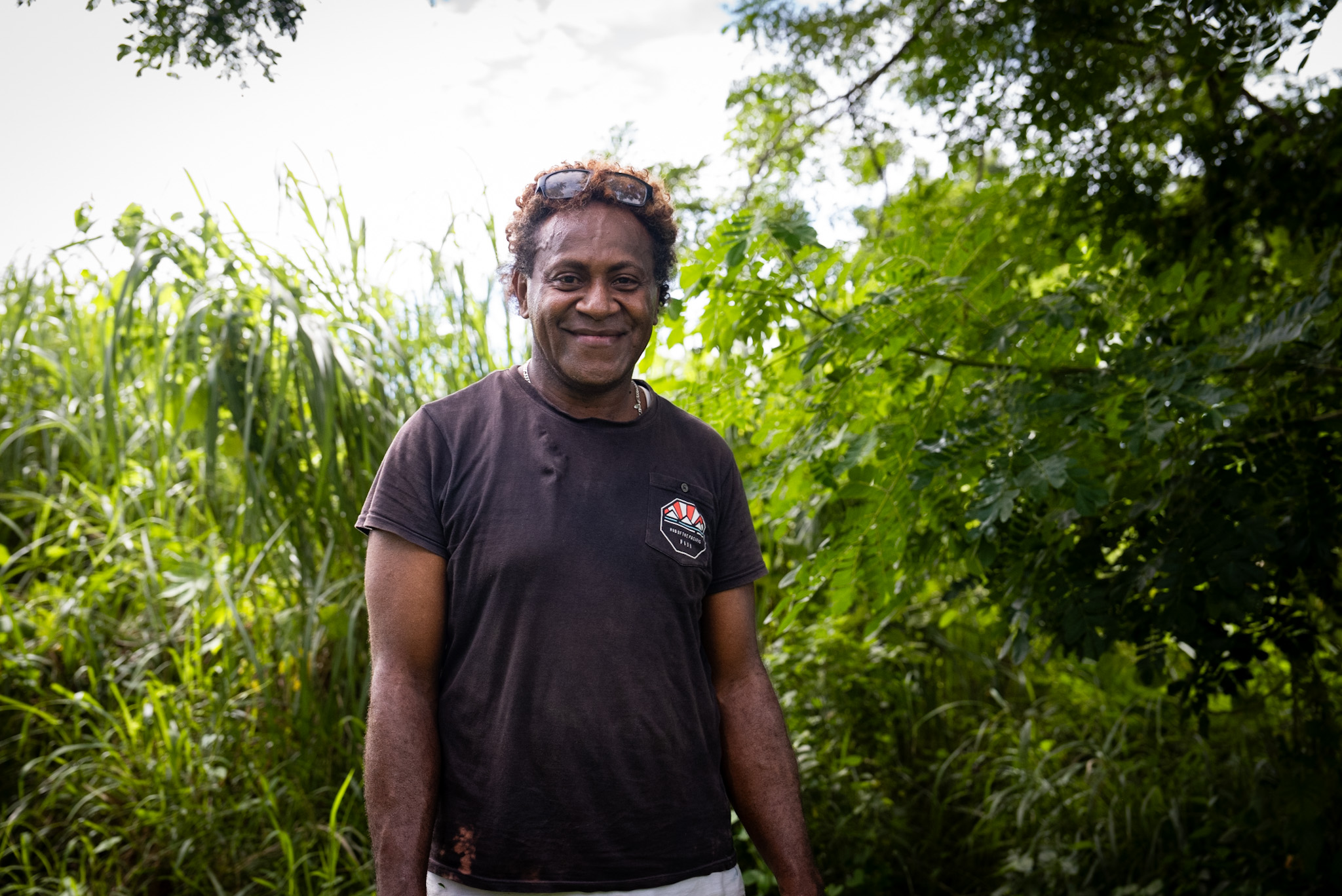Poasa’s Story
Just outside of the hustle-and-bustle of Nadi town is Nasiro farm, maintained and nurtured by Poasa, a resident who lives in the nearby village of Nakavu. Poasa is a member of Rainbow Pride Foundation (RPF), a Fiji-based organisation that works to protect and promote the rights of LGBTQ+ peoples.
In a country like Fiji, the organisation has its work cut out for it – dealing with predominant homophobic attitudes, discriminatory practices, and hate crimes affecting its members. This coupled with limited access to funding and an increasing set of problems affecting much of its membership has made it increasingly difficult to achieve its mission. But as with many other NGOs, the work goes on. And nowhere is this more visible than in Poasa’s ‘PRIDE’ farm.
“I started this farm with seven other members from the Rainbow Pride Foundation,” he shares. “We built it together, right here in Nakavu. But over time, people moved on, and now it’s just me.”
With limited funds, farming equipment, and resources - Poasa is only able to hire help occasionally, stretching every dollar to ensure he is able to get the work done.
“So, if I have a hundred dollars, I’ll recruit 5 people to help me and I’ll give each of them $20,” he says proudly. “I provide the lunch for them. I dive for ‘kai’ (freshwater mussels), I cook cassava.”
“I make lunch for them to eat so that they’re happy about the work they do. That’s my thinking, that in doing these things for them, the next time I ask, they’ll be eager to help. That’s why I do that.”
Weaving through the rows of cassava, interspersed with chili and eggplant, it’s clear that the soil is incredibly fertile. And yet, despite this, Poasa says it was never utilised.
“It was just vacant,” he says. “It was through the support from RPF that we cultivated the land. Then people noticed that what we planted here grew really well.”
But it hasn’t always been easy. The vicious intersection of poverty and queerness are clearly marked in Poasa’s story.
“At times we had no food at home, and I was looking after 6 people. I just tell them, stay here. I will find food for you. But I struggled to find food for them. I would go fishing – if you look at my page (on Facebook), you’ll see the different ways I tried to look for food. I also had friends – thankfully we have networks. Some of my friends who worked at the hotels would drive over and bring us some food rations.”
Then there came the remarks from others who began to take notice of the farm. Barbed comments and false accusations framed much of the conversation around it during its early days.
“This was a struggle unlike any other I’ve dealt with in my life. People would point at us and call us ‘qauri’ (Fijian derogatory term for an effeminate boy or man). Some days, I just cry.”
“But now, seeing what we are able to do and achieve, it’s zipped their mouths. From the finger pointing that they used to do, now that they see us feeding the village, it’s changed what they used to think about us. So now we feel proud of ourselves.”
Ever the optimist, he says he is glad he went through that. Having experienced and survived those challenges, he feels that he can take on any other hardships.
“Now I can fight.”
When asked how things are different now in the village, Poasa says that when he walks by people’s houses they call out to him, “Mai, lako mai, dou mai gunu ti.” Come, come have tea.
It’s a small gesture but in a place like Nakavu, it’s change. And for people like Poasa, that change is worth fighting for.


